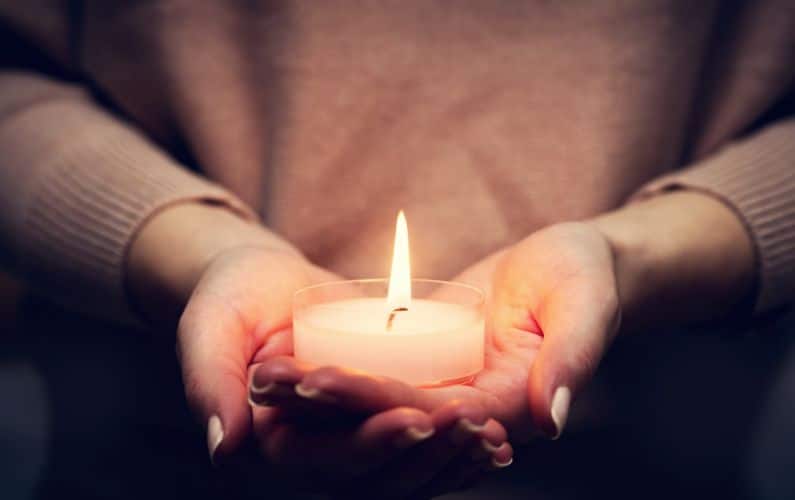Navigating the Sacred Void: Finding Your Light in the Dark Night of the Soul

My own spiritual path did not begin with a sudden flash of light or a moment of blissful insight. It began in darkness. A profound, disorienting, and ultimately transformative period that I now understand as the Dark Night of the Soul was the very catalyst for my awakening. It was the sacred, fertile void from which my true purpose began to grow.
This journey is an integral part of any true spiritual awakening, a time when the soul demands we shed all that is not in alignment with our highest truth. I know how courageous this path is, and if you find yourself within its depths, I want you to hear me clearly: you are not failing or lost. You are on holy ground, and this passage is an initiation.
What I Learned in the Darkness
The term “Dark Night of the Soul” comes from the 16th-century mystic St. John of the Cross, but the experience is timeless. As I came to understand it, this is not just a spiritual crisis; it is a profound recalibration. It is the void between who you thought you were and who you are truly becoming.
During this time, I felt an acute sense of alienation and a loss of meaning. The beliefs that once anchored me crumbled, and the joy I found in life felt distant and hollow. This was not a sign of spiritual failure. It was the necessary dismantling of my ego’s scaffolding so that my soul’s architecture could finally be revealed. The darkness I perceived was simply the shadow cast by all the illusions I was finally ready to release.
Signs and Characteristics of This Sacred Passage
While the journey is unique for everyone, I’ve seen common threads in my own experience and in those I have been privileged to guide. It is often characterized by:
A Profound Sense of Emptiness and Disillusionment
You may look at your life and feel a hollow ache, a sense that the reality you have built is meaningless. This is your soul’s way of telling you that it cannot be nourished by superficial achievements or external validation.
The Feeling of Being Spiritually Abandoned
Prayer can feel like speaking into a void. Meditation may offer no peace. This divine silence is not a punishment. For me, this journey was deeply connected to unresolved pain, forcing me to confront the spiritual reasons why I experienced trauma. It is an invitation to find the Divine not outside of yourself, but within the very fabric of your being—even within the pain.
Deep Existential Questioning
You will question everything: your identity, your purpose, the nature of reality. This is the mind stripping itself of borrowed truths and conditioned beliefs to make space for a directly experienced, embodied wisdom.
Emotional and Psychological Pain
The Dark Night can bring waves of sorrow and despair that feel bottomless. It is crucial to hold this pain with immense compassion, recognizing it as the grieving of the old self. It is often through this very process that we discover our unique path as a wounded healer, destined to turn our deepest struggles into our greatest gifts.
How to Navigate the Void with Grace
This journey cannot be rushed or fixed, but I learned there are ways to move through it with grace, courage, and profound self-compassion. The goal is not to escape the darkness, but to allow it to do its sacred work within you.
Embrace Radical Self-Compassion
Release any judgment that you should be feeling differently. You are not broken. This is a powerful time to move beyond self-criticism and truly practice the art of self-acceptance. Offer yourself the same tenderness you would offer a beloved friend.
Surrender to the Process
Your ego will fight to regain control, to understand, and to end the discomfort. Your soul, however, knows that true power lies in surrender. Release the need to know what’s next. Trust that you are being held, even when you cannot feel it. Your only task is to be with what is, right now.
Seek Grounded Support
While this journey is ultimately your own, you do not have to walk it completely alone. Sharing your experience with someone who can hold space without judgment is vital. Finding a mentor or guide can be an anchor, which is why it is so important to understand how to choose a qualified practitioner who can hold this sacred space.
Tend to Your Physical Vessel
Your body is your anchor in this process. Nurture it with nourishing food, gentle movement, adequate rest, and time in nature. Grounding practices are essential. Walk barefoot on the earth. Feel the sun on your skin. These simple acts provide immense stability when your inner world is in flux.
The Dawn After the Dark Night
No night lasts forever. The dawn that followed my own Dark Night was unlike any light I had known before. It was not the fleeting light of happiness, but the radiant, unshakeable light of my own divine nature, fully embodied.
From that experience, I emerged with a quiet strength, a deep sense of inner peace, and a profound capacity for empathy. I no longer sought validation from the outside world because I had found the source of love and truth within. My intuition became clearer, my purpose more defined, and my connection to all of life became palpable. This is the rebirth your soul is orchestrating for you, too.




